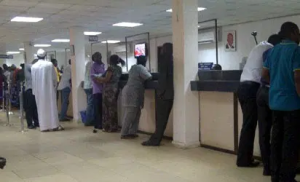Nigerian Banks Slash Cash Withdrawal Limit to ₦10,000 in Nasarawa
In a significant move that has sparked widespread concern among residents and local businesses, commercial banks operating in Nasarawa State have drastically reduced their cash withdrawal limits to ₦10,000. This decision, which took effect recently, has left many customers grappling with the implications of restricted access to cash in a region where cash transactions remain vital for daily operations.
Impact on Local Businesses
The new policy restricts over-the-counter withdrawals to a mere ₦10,000 per day. Automated Teller Machines (ATMs) maintain a slightly higher limit of ₦20,000. However, many ATMs are either non-functional or out of cash. This reality exacerbates the challenges faced by individuals and businesses alike. Customers are increasingly frustrated as they navigate the limitations imposed by their banks.
Local business owners have voiced their concerns about how this withdrawal limit affects their operations. For instance, a small trader in Mararaba relies heavily on cash transactions for purchasing goods from suppliers. She expressed dismay over the new policy: “How am I supposed to run my business with such a low withdrawal limit? I need more cash to buy stock.” This sentiment echoes throughout the community as many small enterprises struggle to adapt to the new banking landscape.
Reasons Behind the Policy
Bank staff have cited inadequate cash reserves as the primary reason for implementing these restrictions. A bank employee at one of the branches in Karu explained that the Central Bank of Nigeria (CBN) directed financial institutions to limit cash withdrawals due to ongoing liquidity issues. “We are just following orders from above,” she stated, highlighting the disconnect between banking policies and customer needs.
Shift to Alternative Payment Methods
The situation has led many residents to turn to Point of Sale (POS) operators for their cash needs. However, these services often come with high transaction fees. Customers find themselves paying between ₦200 and ₦400 for withdrawals of ₦5,000 and ₦10,000 respectively. This further strains their finances amidst economic challenges.
This withdrawal limit comes at a time when Nigeria is pushing towards a cashless economy. While electronic payment methods gain traction among some segments of the population, many individuals remain hesitant due to concerns about security and accessibility. A local market vendor noted that while she has started accepting bank transfers from customers, she still prefers cash due to its immediacy and reliability.
Challenges for the Informal Sector
The impact of this policy extends beyond individual consumers; it poses significant challenges for businesses that operate primarily in cash. The informal sector constitutes a large portion of Nigeria’s economy and relies heavily on cash transactions for daily operations. Experts warn that restricting access to cash could stifle economic activity and hinder growth in this vital sector.
Calls for Action
As frustration mounts among customers and businesses alike, calls for action are growing louder. Residents urge banks and the CBN to reconsider these limits and provide more accessible options for cash withdrawals. “We need our banks to support us during these tough times,” said a concerned citizen outside a local bank branch.
The Path Forward
The CBN’s decision appears aimed at promoting electronic transactions as part of its broader strategy to enhance financial inclusion across Nigeria. However, critics argue that without adequate infrastructure and education on digital banking methods, such initiatives may not yield the desired results. The high level of illiteracy in some areas poses additional challenges as many individuals remain unfamiliar with digital payment systems.
While the intention behind reducing cash withdrawal limits may be rooted in promoting a more efficient banking system and encouraging electronic transactions, the immediate consequences have left many residents in Nasarawa grappling with accessibility issues. The balance between advancing towards a cashless society and ensuring that citizens can meet their daily financial needs remains precarious. As this situation unfolds, it is clear that both banks and regulatory bodies must work collaboratively with communities to find solutions that address these pressing concerns.


